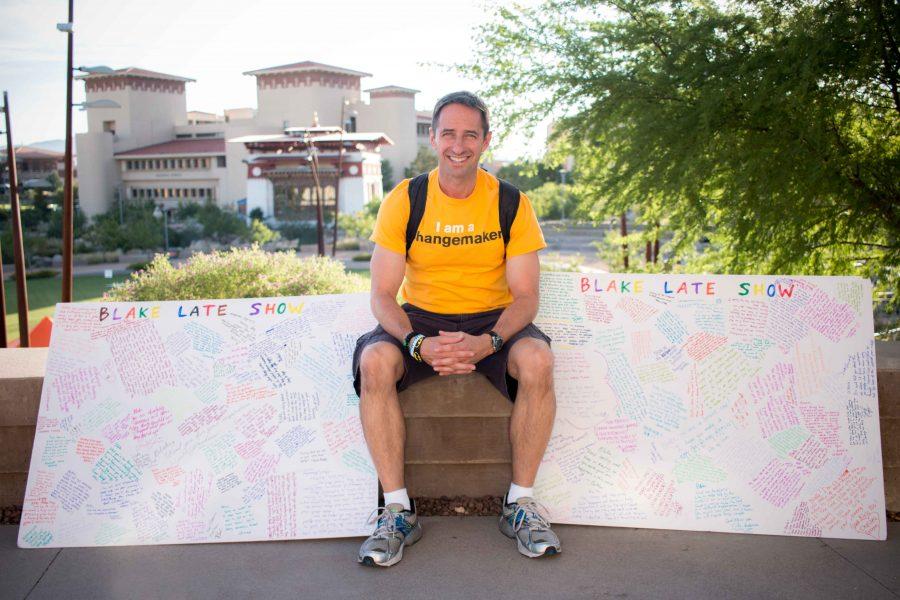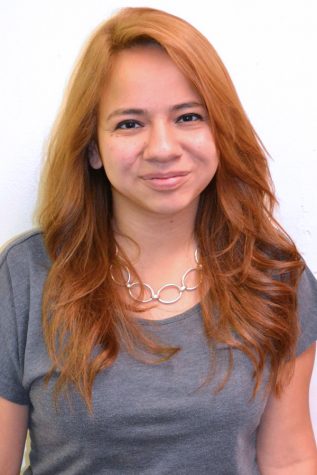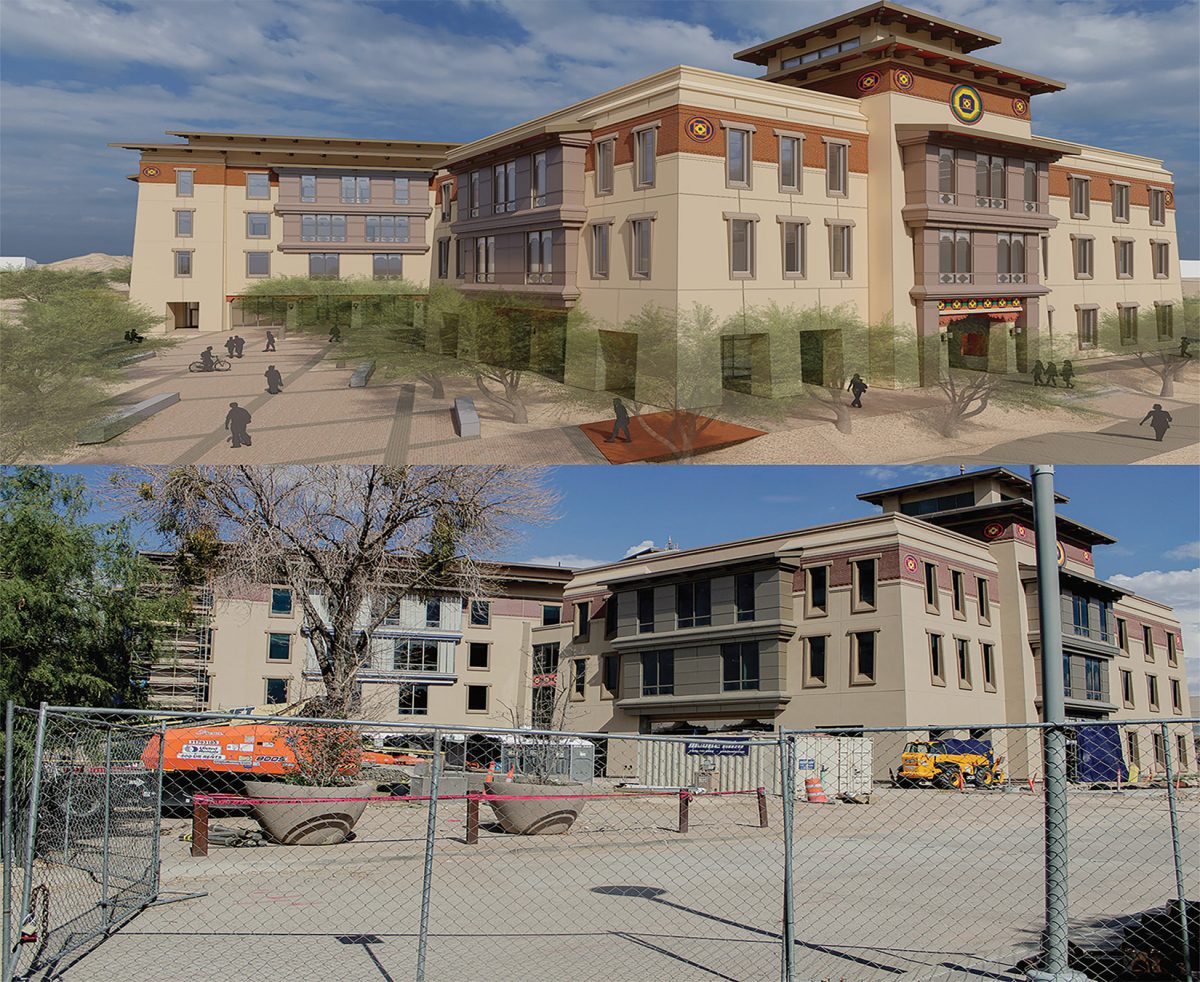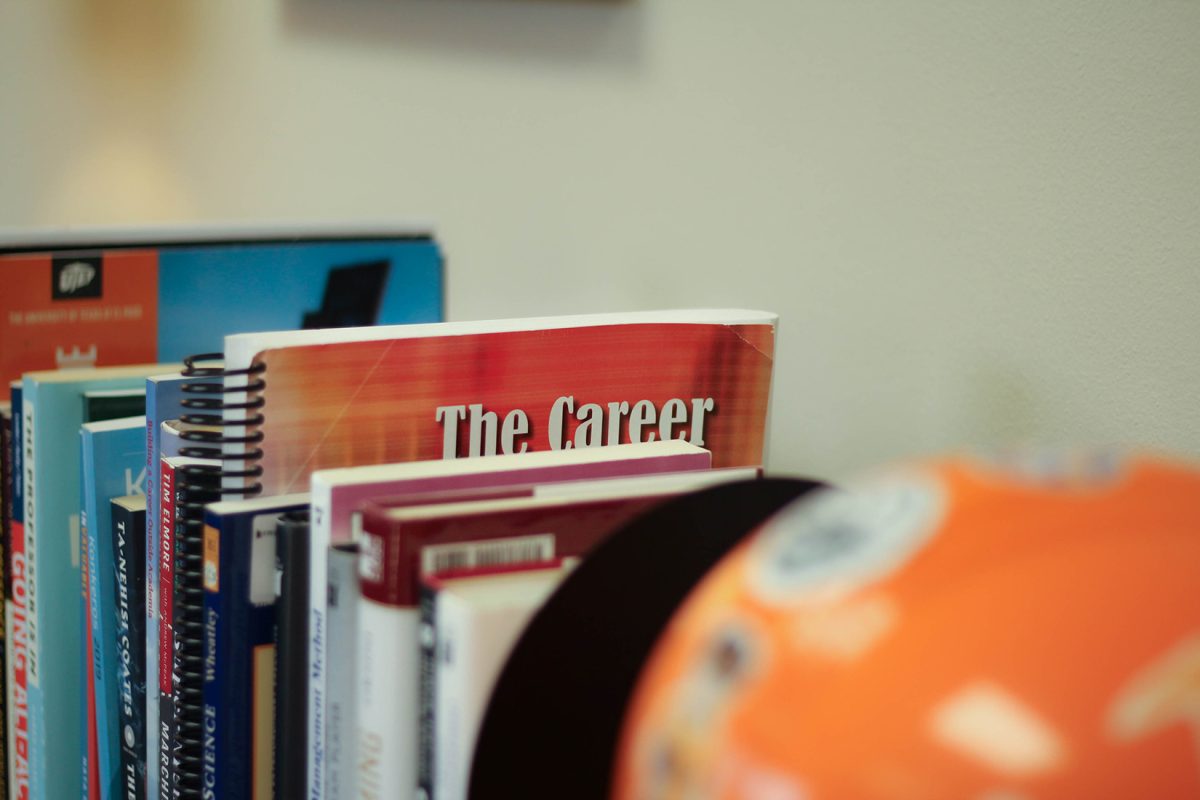According to the Rape, Abuse, Incest National Network, every 109 seconds an American is sexually assaulted. In 2014, a study done by the Bureau of Justice said 80 percent of rapes on campuses go unreported.
Ron Blake made a stop at UTEP on Sept. 23 to share his story.
One night in 2011, when Blake was living in downtown Phoenix, three men came into his loft while he was asleep, one of which was his life partner. They held him down and sexually assaulted him. The trauma from that night is what caused Blake’s post traumatic stress disorder.
“I was reading an article in Time magazine—sexual assault on campus—and when I read that article, it really triggered something in me, and I talked to my friend and said, you know I think I was raped,” said Blake.
The police showed up that night, but Blake was unable to comprehend reality.
“I knew something bad happened that night,” Blake said. “I just never processed it as rape.”
Blake sought help from a psychiatrist and therapist and that’s when they diagnosed him with PTSD.
“The two symptoms I exhibited were anger and isolation because I started pulling away from people badly and I had a lot of anger,” said Blake.
Years later, Blake attempted suicide after a week of nightmares and not being able to sleep. A week after his attempt, he went to social media to confront the assault head on by opening up to his friends and family about his experience. After positive feedback from his friends, things started to look up for Blake, although it was still an emotional tumult for him.
“You’re going to have your moments, you’re going to have your triggers, you are going to have your tough times,” he said.
One night in the midst of a post traumatic episode, Blake was watching the “Late Night with Steven Colbert” show and found himself laughing. The show became what Blake calls his muse—his purpose. That’s when he got the idea for “The Blake Show,” as a way to share his story and be able to make light of the situation.
“I identified I was laughing. Some people would just sit there and let that go by and it wouldn’t be a big deal. For me, I was just numb,” Blake said.
Blake has traveled to Arizona State University, University of Arizona, Northern Arizona University, NMSU, to 10 community colleges and a couple art institutes. He estimates he’s been to around 15 colleges and four universities. Blake carries around large white boards and asks people if they’d like to write a message after he shares his story. He’s collected over 200 boards with thousands of messages in multiple languages, and by sharing his stories Blake found that those who have been assaulted are comfortable about opening up.
“Anybody that’s been raped, they just need to understand—they need to know it’s okay to talk about it,” Blake said “Once they start talking about it, there’s probably going to be a tendency to say, ‘if I am raped, I’m going to go file a police report.’”
Although Blake’s goal is still to eventually make it onto Steven Colbert’s show, he’ll be happy if the boards can at least be turned into an art project and showcased somewhere and make an impact in the lives around him.
“When these are out, it’s powerful, it helps people. They read them and it’s amazing because people will share stuff on here,” he said.
Blake would like to continue reaching out to those who have been sexually assaulted, travel to more universities and maybe work with organizations if that’s a possibility.
“I’m controlling the story instead of it controlling me,” Blake said.
To support Ron Blake on his journey, you can search for his Facebook page, Blake Late Show.
If you or someone you know has been a victim of sexual assault, contact STARS (Sexual Trauma and Assault Response Services) at 915-533-7700 or 915-779-1800
Michaela Román can be reached at [email protected].







